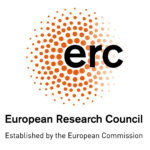The ongoing destruction of the natural world raises critical questions about responsibility. How do we remember the victims, both human and non-human? And how do we negotiate the difficult question of who is to blame, especially in situations where we are all in one way or another implicated? Contemporary culture plays a crucial role in addressing these questions.
The aim of this project is to understand how environmental degradation is being framed and remembered as violence in contemporary culture, and how representations of such ecological violence articulate and reflect on questions of guilt, implication, and responsibility. Ecological violence has deep historical roots that tie it to other forms of violence, especially colonialism and genocide. Writers, artists, and filmmakers are finding ways of representing these ‘ecologies of violence,’ making visible the historical, structural and discursive links between crimes against humanity and crimes against nature.
This will be the first large-scale cross-media study of the cultural imagination of ecocide and other forms of eco-violence. Drawing on recent approaches in memory studies and ecocriticism, we will elaborate an innovative ecological approach that can account for the connections between different forms of violence and their cultural representation and memory.
This project will effect a reorientation in cultural memory studies and ecocriticism toward a conceptualization of cultural memory in more-than-human terms. Paying attention to how the histories of suffering of humans and non-humans are entangled fundamentally changes the way we think about responsibility.
Would you like to stay informed about our activities and upcoming events? You are very welcome to subscribe to our mailinglist.
Banner images:
- Susanne Knittel, 2024, Moreton Bay Fig, UCLA Campus, Los Angeles, California, USA (seeds brought from Australia in the 1870s).
- Ifor Duncan, 2024, Water Hyacinths on the reservoir of the Hidroituango Megadam, Cauca river, Colombia.
- Ifor Duncan, 2024, A bocachico fish on the Hidroituango Megadam, Cauca river, Colombia.
- Sofia Lovegrove, 2018, Tropical Botanic Garden of Belém, Lisbon, Portugal (former Colonial Garden).
News
-
MOVING [IMAGES] POST-EXTRACTIVISM
EcoViolence is proud to announce MOVING [IMAGES] POST-EXTRACTIVISM, a year-long programme organised by Salomé Lopes Coelho, together with the Network for Environemental Humanities. How can moving images reveal and refuse the ecologies of extractive violence? How can cinema enact post‑extractive world configurations? This year-long programme focuses on moving images to think with and against contemporary…
-
Looking back at Ice Memory
On 4 December we welcomed Professor Susan Schuppli for an evening presentation Ice Memory hosted by BAK basecamp, alongside The Utrecht Forum for Memory Studies and the Network for Environmental Humanities. From Ice Core archives to the sound of Himalayan glaciers, Schuppli shared elements from her practice that relate to memory in the context of…
-
Salomé Lopes Coelho presenting at the II Coloquio Ecologías Críticas
On 3 December, Salomé Lopes Coelho is presenting her paper ‘Inhuman Intimacies: Air, Water, and Transorientation in Latin American Experimental Films’ at the II Coloquio Ecologías Críticas, hosted in Buenos Aires, Argentina. During her presentation, Salomé will analyse experimental cinematic practices by Latin American women filmmakers who engage with air and water as entangled materialities….
Agenda
-
“Join the Orca Uprising!” Nonhuman Resistance and Multispecies (In)Justice
11th Biennial EASLCE ConferenceUtrecht University14–17 April 2026 We are delighted to announce that the 11th Biennial Conference of the European Association for the Study of Literature, Culture, and Environment (EASLCE), will be hosted at Utrecht University from 14 to 17 April, 2026. Dedicated to the theme of “Nonhuman Resistance and Multispecies (In)Justice”, the conference will…
-
Salomé Lopes Coelho presenting at GERMINATIONS
On 5 February, Salomé Lopes Coelho is presenting at GERMINATIONS: Conversations in Environmental Humanities with Latin America & the Caribbean, an event organized by the Institute of Languages, Cultures and Societies (ILCS). The title of her presentation is ‘Ecological Violence and Documentary Cinema: Lithium Mining Conflicts from Covas do Barroso to the Andean Puna’. The…
-
‘Hydrologies of Dispossession’, online lecture by Ifor Duncan
Join this free online presentation by Ifor Duncan titled ‘Hydrologies of Dispossession’ coming Wednesday 10 december, at 16:30 CET (local time 18:30). The lecture is hosted by Salt, cultural institution based in Istanbul, Turkey. Rivers are on the frontline of environmental devastation. Facing manifold threats—pollution, drought, displacement, and dispossession—communities living with freshwater environments are central…


![MOVING [IMAGES] POST-EXTRACTIVISM](https://ecologiesofviolence.sites.uu.nl/wp-content/uploads/sites/1107/2026/01/project-150x150.jpg)





